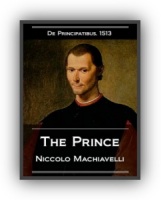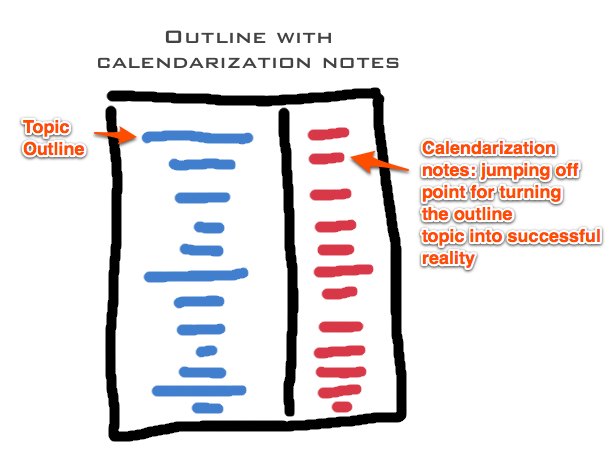Performance planning for Resume and Job Interview preparation
beta
This page is about repeatedly identifying the things you want to be able to say about yourself sometime in the future—in terms of both years (5 years, 20 years) and dates (2015, 2030 …).
These are things that are absolutely rock solid true — knowledge specialty and Managing Oneself
Be very, very, very careful to not aim backwards—toward a world that is slipping into history.
These things may conflict with what everybody knows.
You want to be continuously thinking in terms of the evolving content, structure, and dynamics of the world.
See resume in The Network Society
The first thing to identify: your future basic qualification which will separate competing candidates from non-candidates.
About knowledge specialty (calendarize this?)
“The World Is Full Of Options.”
The responsibility for the development of the individual knowledge worker, and for his or her placement, will, I am convinced, have to be taken by the individual.
It will have to become very much the responsibility of the individual to ask, What kind of assignment do I now need?
What kind of assignment am I now qualified for?
What kind of experience and what kind of knowledge and skill do I now need to acquire?
The decision, of course, cannot be that of the individual alone.
It has to be made in contemplation of the needs of the organization.
It also has to be made on the basis of an outside appraisal of the strengths, the competencies, the performance of the individual — Peter Drucker, Management, Revised Edition
The Long View
This page is an attention directing tool. It is a foundational part of work-life thinking.

“To know something,
to really understand something important,
one must look at it from sixteen different angles.
People are perceptually slow,
and there is no shortcut to understanding;
it takes a great deal of time.” read more

If you have a track record of just going to work and doing the same old thing every day you may have to explain your lack of initiative in helping your organization move forward (Toward The Next Society).
Types of behavior that can be observed …

The three types of intelligence discussed in The Prince by Niccolò Machiavelli

Take Responsibility for Your Career
The stepladder is gone, and there’s not even the implied structure of an industry’s rope ladder. It’s more like vines, and you bring your own machete.
Q: If a young man in a gray flannel suit represented the life long corporate type, what’s today’s image?
A: Taking individual responsibility and not depending on any particular company.
Equally important is managing your own career.
You don’t know what you’ll be doing next, or whether you’ll work in a private office or one big amphitheater or even out of your home.
You have to take responsibility for knowing yourself, so you can find the right jobs as you develop and as your family becomes a factor in your values and choices.
Remarkably few Americans are prepared to select jobs for themselves.
When you ask, “Do you know what you are good at?
Do you know your limitations?” they look you in the eye with a blank stare.
Or they often respond in terms of subject knowledge, which is the wrong answer.
When they prepare their résumés, they try to list positions like steps up a ladder.
It is time to give up thinking of jobs or career paths as we once did and think in terms of taking on one assignment after another.
We have to leap right over the search for objective criteria and get into the subjective—what I call competencies.
September 9 — The Daily Drucker
Google Free Agent Nation
See Peter Drucker’s advice on people decisions. Especially the part about assignments. What assignments do you want to be able to undertake?
Go to a few job web sites and look at some job ads. Each starts with a basic slot an employer is seeking to fill. Which slots do you want to fill? This is an ever evolving landscape.
The decisions you make at this point govern the more detailed thinking needed in the rest of this page.
How would you approach these questions:
If you were in this position, what would you do?
What makes you think you’re qualified for this?
There is a gigantic problem in the “say about yourself” concept (introduced in the opening paragraphs). There are favorable things that various outsiders want to hear—based on their situation and world view and the favorable things you perceive—based on your experiences and world view. Additionally there is Peter Drucker’s world view. This means you need to identify the separate thinking branches you need plus the concepts to reconcile the three. There is a connection to networking and the jobs of tomorrow (also an ever evolving landscape).
AS WE ADVANCE deeper into the knowledge economy, the basic assumptions underlying much of what is taught and practiced in the name of management are hopelessly out of date.
As every seasoned executive has learned, few policies remain valid for as long as 20 to 30 years. Nor do most assumptions about the economy, about business, about technology remain valid longer than that. Yet most of our assumptions about business, technology and organization are at least 50 years old. They have outlived their time.
... snip, snip ...
Management is the specific tool, the specific function, the specific instrument, to make institutions capable of producing results.
Management’s concern and management’s responsibility are everything that affects the performance of the institution and its results—whether inside or outside, whether under the institution’s control or totally beyond it.
Peter Drucker
Management’s New Paradigm
The basic idea in résumé and interview planning is to anticipate and research what employers are looking for on a resume and in the interview, do a work breakdown, and integrate this into your work performance thinking and planning while remembering what Peter Drucker suggested (”this is who I am“) in Managing Oneself. Unfortunately this is not the whole story as evidenced by the broad landscape introduced in the links on this page.
“Successful careers are not planned.
They develop when people are prepared for opportunities because they know their strengths, their method of work, and their values.” — Managing Oneself
See the September entries in The Daily Drucker
You might want to set up a “things to say” document or dashboard for collecting and prioritizing ideas and concepts. Some thinking canvases SM © and mind maps may be helpful. Think in terms of getting absolutely clear about the reality of your direction and performance.
See “Questions for Reflection and Discussion” in Halftime
Resume image
HR
Performance Landscape
 The World Is Full Of Options (calendarize this?) The World Is Full Of Options (calendarize this?)
 The Wisdom of Peter Drucker by Bob Buford (calendarize this?) The Wisdom of Peter Drucker by Bob Buford (calendarize this?)
 Ten Principles for Life II (calendarize this?) Ten Principles for Life II (calendarize this?)
 My Life as a Knowledge Worker (calendarize this?) My Life as a Knowledge Worker (calendarize this?)
 Peter’s Principles (calendarize this?) Peter’s Principles (calendarize this?)

Calendarization. When I run across something that want to explore, I break the sentences into separate paragraphs and create a hierarchical structure — Management’s New Paradigms example
 Mojo: How to Get It, How to Keep It, How to Get It Back if You Lose It Mojo: How to Get It, How to Keep It, How to Get It Back if You Lose It
 The Effective Executive. What Have You Contributed to Me Lately? The Effective Executive. What Have You Contributed to Me Lately?
 Chapters 9 and 31 in Management, Revised Edition deal with objectives and measurements. On Measuring Performance Chapters 9 and 31 in Management, Revised Edition deal with objectives and measurements. On Measuring Performance
 The conceptual resource section of Early Career Work The conceptual resource section of Early Career Work
 The Change Leader The Change Leader
 78 Important Questions Every Leader Should Ask and Answer 78 Important Questions Every Leader Should Ask and Answer
 The First Ninety Days The First Ninety Days
 If being involved in Innovation and Entrepreneurship is on your radar, see “VI Staffing” in Innovation and Entrepreneurship If being involved in Innovation and Entrepreneurship is on your radar, see “VI Staffing” in Innovation and Entrepreneurship
 Trigger Points Trigger Points
 Management Golf Management Golf
 Management Alert Management Alert
 Reality Check Reality Check
 What Got You Here Won’t Get You There (in particular see Global Leadership Inventory) What Got You Here Won’t Get You There (in particular see Global Leadership Inventory)
Life-TIME Investment System links
 TLN conceptual resource file listing TLN conceptual resource file listing
 Linchpin Linchpin
 What do you want to be remembered for? What do you want to be remembered for?
Work search planning resources
 See Marketing Yourself and Smart Questions: Interview Your Way to Job Success for some additional considerations. See Marketing Yourself and Smart Questions: Interview Your Way to Job Success for some additional considerations.
 See Career Resume Planning and Career Interview Planning article tags at my delicious bookmarks. See Career Resume Planning and Career Interview Planning article tags at my delicious bookmarks.
 Conducting A Successful Job Hunt Conducting A Successful Job Hunt
 Distinguishing Yourself As A True Leader During Behavioral Competency Interviews Distinguishing Yourself As A True Leader During Behavioral Competency Interviews
 The Role Of The Executive Recruiter In Your Job Search The Role Of The Executive Recruiter In Your Job Search
According to Seth Godin
What good interview questions are actually trying to discover
How long are you willing to keep pushing on a good project until you give up?
How hard is it to get you to change your mind when you’re wrong?
How much do you learn from failing?
How long does it take you to learn something new?
How hard is it for you to let someone else take the lead?
How much do you care?
The rest is merely commentary, either that or they’re interviewing you for a job that’s not as good as you deserve. For those jobs, the only question they’re really focusing on is, “will she fit in around here?”
Notes from Career Realism: 10 Things Employers & Recruiters Want from You
Managing for the Future
Information Means a New Type of Management
… One hundred and twenty-five years ago, when large enterprises first came into being, the only organizational structure they had to model themselves on was the army: hierarchical, command-and-control, line and staff. Tomorrow’s model is the symphony orchestra or the football team or the hospital. Mahler’s symphonies require the presence of 385 instrumentalists on stage, never mind the singers. If it were to organize itself the way we organize our big companies today, a modern orchestra would have a chief executive officer plus a chairman conductor flanked by two nonexecutive conductors, six vice-chairman conductors, and countless vice-president conductors. Instead of which there is one conductor to whom every specialist instrumentalist plays directly, because everyone has the same score. In other words, there are no intermediaries between the specialists and the top manager, and they are organized as a gigantic task force. The organization is totally flat.
There is a famous 1920s joke about the then-new discipline of industrial engineering which takes on fresh meaning today. The story concerns a (needless to say) German engineer who attends a symphony concert on which he writes a report. He points out that most of the musicians sit around doing nothing most of the time: Would it not be more efficient if they played the Rossini, Beethoven, and Brahms simultaneously rather than in sequence, thus occupying the players all the time? Well, the orchestra still functions by playing one work at a time. Indeed, one of the lessons of organizing around information is the importance of concentration to prevent people from becoming fatally confused. The orchestra can perform precisely because all the players know they are playing Mozart, not Haydn. A medical team performing an operation also has a score, although an unwritten one. But the performance of a business or a government agency creates its own score, or many scores, as it goes along. An information-based organization must therefore structure itself around goals that clearly state expectations and objectives both for the enterprise and for each specialist. There must be strongly organized feedback so that every member can exercise self-control by comparing expectations with the actual outcome.
I believe, therefore, that we are moving toward more concentrated organizations and units of organizations, based on much clearer business and individual goals, on self-discipline and on systematic feedback. If this is truly the case, businesses will have to learn that they must build their communications system on information up rather than information down. Information becomes communication only if the recipient understands and accepts it. If information only moves down, that cannot happen. The structure must be based on the upward communication of information that enables those at the top to know what goes on at the bottom, at the sharp end.
The Learning Society Is Taking Over
In the place of the blue-collar world is a society in which access to good jobs no longer depends on the union card, but on the school certificate. Between, say, 1950 and 1980 it was economically irrational for a young American male to stay at school. In three months a 16-year-old school leaver with a job at a unionized steel plant could be taking home more money than his university-educated cost accountant brother would make in his life. Those days are over. From now on the key is knowledge. The world is becoming not labor intensive, not materials intensive, not energy intensive, but knowledge intensive.
Japan today produces two and a half times the quantity of manufactured goods as 25 years ago with the same amount of energy and less raw material. In large part this is due to the shift to knowledge-intensive work. The representative product of the 1920s, the automobile, at the time had a raw material and energy content of 60 percent. The representative product of the 1980s is the semiconductor chip, which has a raw material and energy content of less than 2 percent. The 1990s equivalent will be biotechnology, also with a content of about 2 percent in materials and energy, but with a much higher knowledge content. Assembling microchips is still fairly labor intensive (10 percent). Biotechnology will have practically no labor content at all. Moreover, fermentation plants generate energy rather than consume it. The world is becoming knowledge intensive not just in the labor force, but in process.
Knowledge is always specialized. The oboist in the London Philharmonic Orchestra has no ambition to become first violinist. In the last 100 years only one instrumentalist, Toscanini, has become a conductor of the first rank. Specialists remain specialists, becoming ever more skillful at interpreting the score. Yet specialism carries dangers, too. Truly knowledgeable people tend by themselves to overspecialize, because there is always so much more to know. As part of the orchestra, that oboist alone does not make music. He or she makes noise. Only the orchestra playing a joint score makes music. For both soloist and conductor, getting music from an orchestra means not only knowing the score, but learning how to manage knowledge. And knowledge carries with it powerful responsibility, too. In the past, the holders of knowledge have often used (abused) it to curb thinking and dissent, and to inculcate blind obedience to authority. Knowledge and knowledge people have to assume their responsibilities.
Managing in the Next Society
Increasingly, a CEO’s job will be much more like the most complex job I know, which is running an opera. You have your stars and you can’t give them orders; you have the supporting cast and the orchestra; you have the people who work behind the scenes; and you have your audience. Each group is completely different. But the opera conductor has a score, and everybody has the same score. In a business you have to make sure all the various groups converge to produce the desired result. This is the key to understanding what’s ahead. It’s not about being less or more important, but differently important. It’s not about refraining from giving orders—but knowing when to give an order and when to treat someone like a partner. And it is not, I assure you, about playing down financial objectives; on the contrary, our demographics tell us that this will become more important. But you will have to know how to integrate your financial objectives with the need to build and maintain a business.
Summary: All of the above is aimed at creating and maintaining an adequate future directed radar system. Since the future is unpredictable it is wise to keep your antenna up and listening. (calendarize this?)
See Part I: Management’s New Realities in Management, Revised Edition
|


![]()
![]()